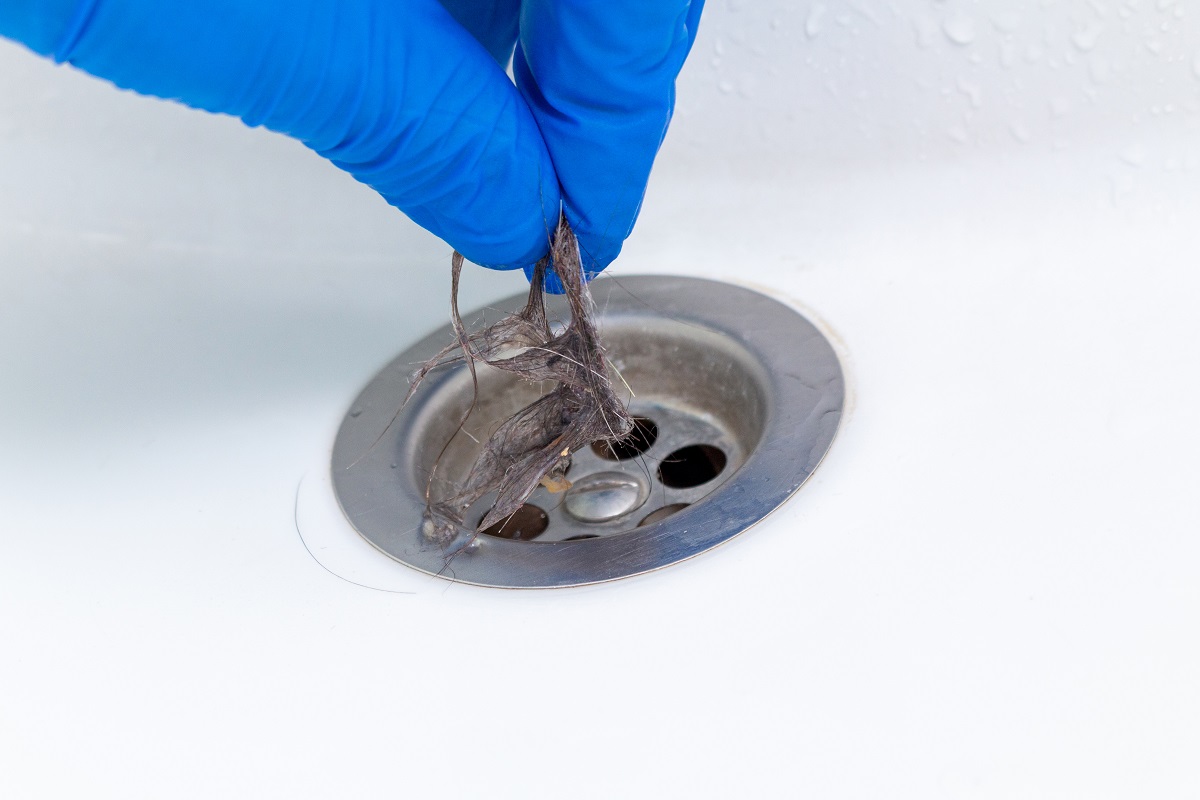
10 Top Causes of Clogged Drains
What are the common causes of clogged drains?
- Hair
- Soap
- Toothpaste
- Oil, Grease, and Fat
- Food Waste
- Small Objects
- Offset or Undersized Pipes
- Tree Roots
- Debris and Dirt
- Mineral Build-up
House cleaning and maintenance can be time-consuming. Every week, you might be dealing with a new problem — broken washing machines, stained carpets, or even clogged drains. The last example is one of the most common and also the most frequent house problems people can deal with. Tired of dealing with clogged drains every month? Read on to find the 10 top causes of clogged drains in your kitchen and bathroom.
Clogged sinks may not seem like a big deal, but can be a repetitive problem for your home. This can also grow into more severe complications in the future if you’re unaware of the causes or solutions to it. Knowing the common causes and taking steps to prevent them is the first step to managing your plumbing troubles.
Hair

Hair is the most likely culprit for your constant drain clogs. Once your hair gets flushed down a drain, it can get stuck on several things — grease, soap, dirt, and even other hair clumps. It builds up over time and can slow down water flow, eventually clogging your drain altogether. Even short hair can build up over time and cause a plug. The best way to prevent this from happening to your drains is to use strainers (also known as drain covers) for all your appliances with a drain. These are small and disposable wire covers that are used to catch hair before it can enter your drain. This can be used not just for your sinks but also for your bathtubs and showers.
Soap
Soap, like hair, can also build up in your drains and pipes over time. Most soaps will leave behind residue in your pipes, and this sticky film can end up catching all sorts of things. The result is a build-up of scum that eventually stops the flow of water through your drain.
One of the ways to prevent this is to switch from bar soaps to liquid soaps. Liquid soaps tend to create less residue as it washes away easier. If you are hesitant to switch soaps, you can still avoid the build-up of soap residue by making sure you clean your shower or tub regularly. Make sure to scrub thoroughly!
Toothpaste
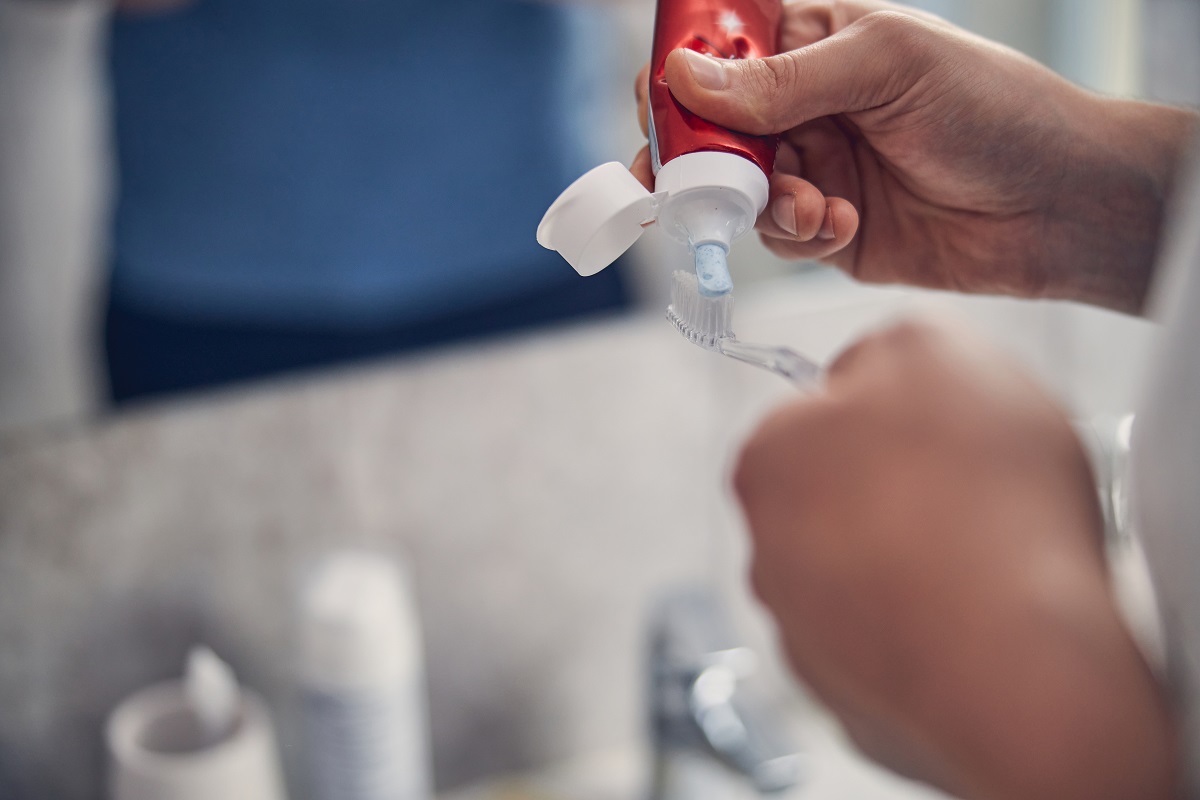
While this is less likely to happen than the first two causes, it can still end up clogging your bathroom sinks. Toothpaste residue is sticky and thick, and if not washed down the drain thoroughly, it can end up trapping other items as it goes down. Your clog in the bathroom sink is likely caused by a combination of hair, soap, and toothpaste. To prevent this, be sure to clean your sink regularly to remove any film from building up.
Oil, Grease, and Fat
Many people will be surprised with this one. Contrary to popular belief grease, oil, and fat can cause a lot of damage to your kitchen sinks. Dumping them down the drain and running hot water after them doesn’t do much with regards to rinsing them out from your pipes. They will still end up coating your drain and pipes and eventually harden over time. This will end up catching other sludge and dirt that you wash down the same drain, eventually creating a serious blockage.
The solution to this is quite simple — always throw out oil and grease. You can make a foil cup above your drain to catch the oil and grease when you pour it out of your pans. Leave it in your sink for a while and eventually, it will harden, making it easy to throw it into the trash.
Food Waste
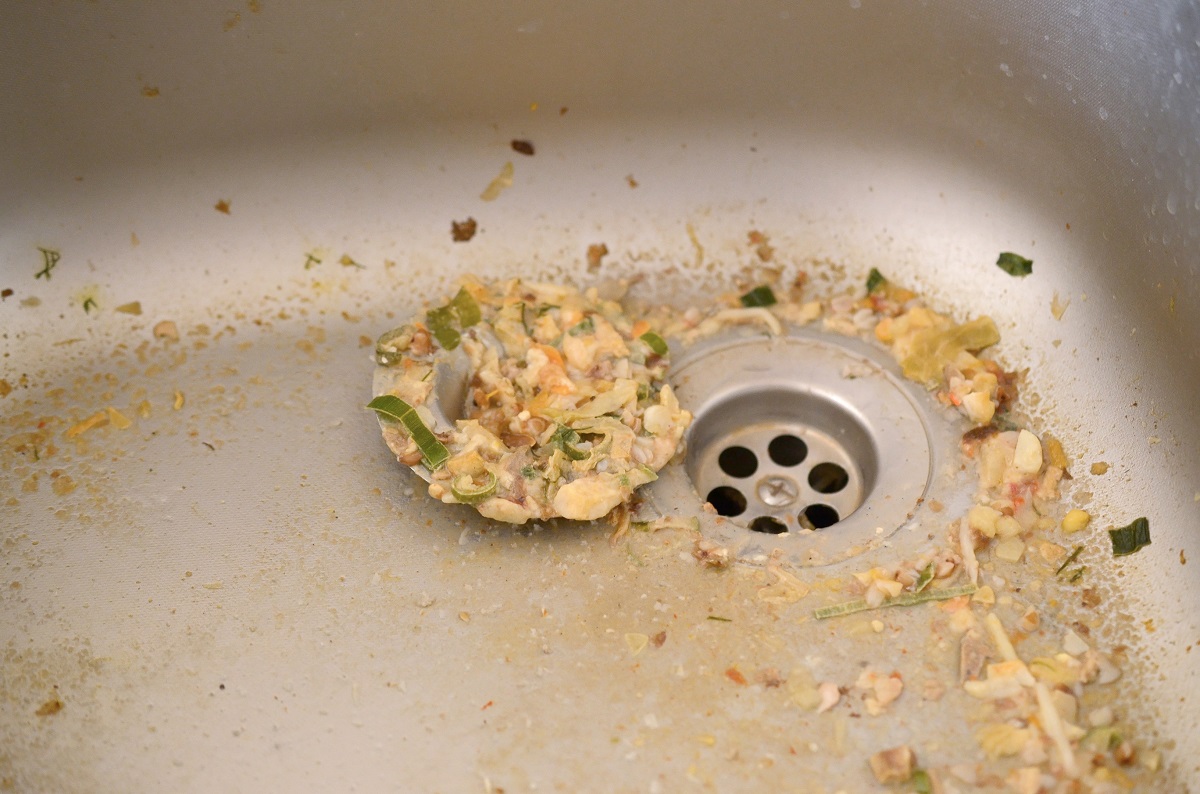
If you tend to throw away scraps into your kitchen sink, that may be what’s causing your clogged drain. While most sinks can handle some scraps, there are limits. Big chunks of food are an obvious no-no. Sticky or fibrous scraps are also not good for your drain.
If your kitchen sink is getting clogged every month, it’s a surefire sign that you’re washing down too much food. Take care to throw your scraps after cooking and eating in your trash can rather than rinsing it off in the sink. Rinsing out your coffee filters right in your sink could also be bad, as coffee grounds can’t disintegrate easily.
Small Objects
Stuff like toilet paper and small objects like jewelry and toys get flushed down drains all the time. While toilet paper can dissolve easily in water, little bits can still get stuck in your pipes. Small objects might also get caught in other stuff that’s already stuck in your drain, like soap residue.
Like with previous causes, the solution is simple. Take care not to accidentally dissolve tissue into your sinks or showers. If you have covers on your drains, this can usually catch most things before they fall in. Be mindful of what’s there and make sure to remove it before turning on the water. If you have young children with you, teach them not to throw their tissue into your sinks or bring small toys with them into the bathroom.
Offset or Undersized Pipes
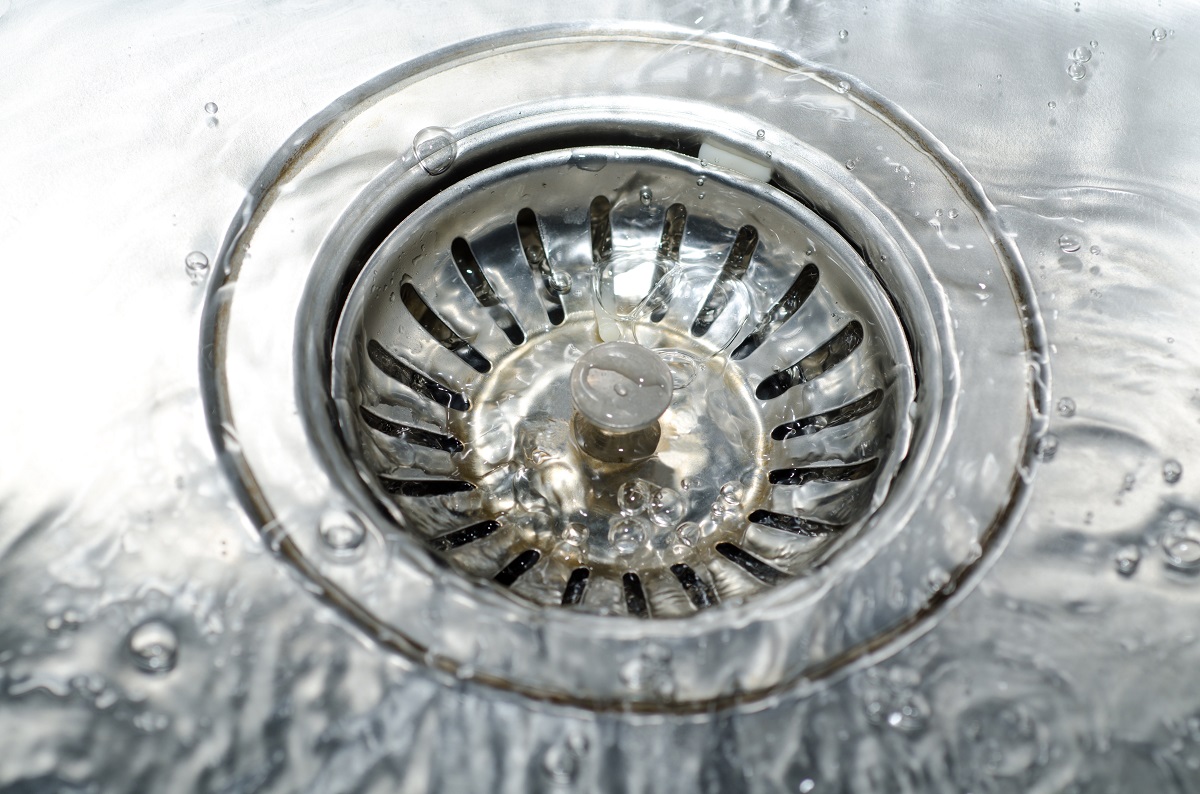
Pipes can become offset over many years as the ground under your homes constantly shifts and settles. Older pipes are more susceptible to this and they may begin to move upwards from their original positions, which will affect your water flow and can create clogs. Undersized pipes can also cause clogging as they are insufficient for the plumbing needs of the house and can come under intense strain from the water flow and material moving through the pipes.
If you think this may be the cause of your clogging, replacing the affected pipes might be your best solution. Supreme Pipe has many options available for you and your homes, such as black iron, galvanized iron, and steel pipes.
Tree Roots
Even the tiniest pipe leak can attract plant roots. If you have trees or bushes in your backyard, your clog may be caused by their growth inside your pipes. This is one of the costlier problems when it comes to a clogged drain. It can lead to extensive pipe damage and can be hard to remove, requiring services from a plumber to fix.
This can be avoided with careful planning. Keep in mind where your pipes are when planting new trees and bushes in your backyard, and avoid keeping plants over areas that overlap with your plumbing.
Debris and Dirt
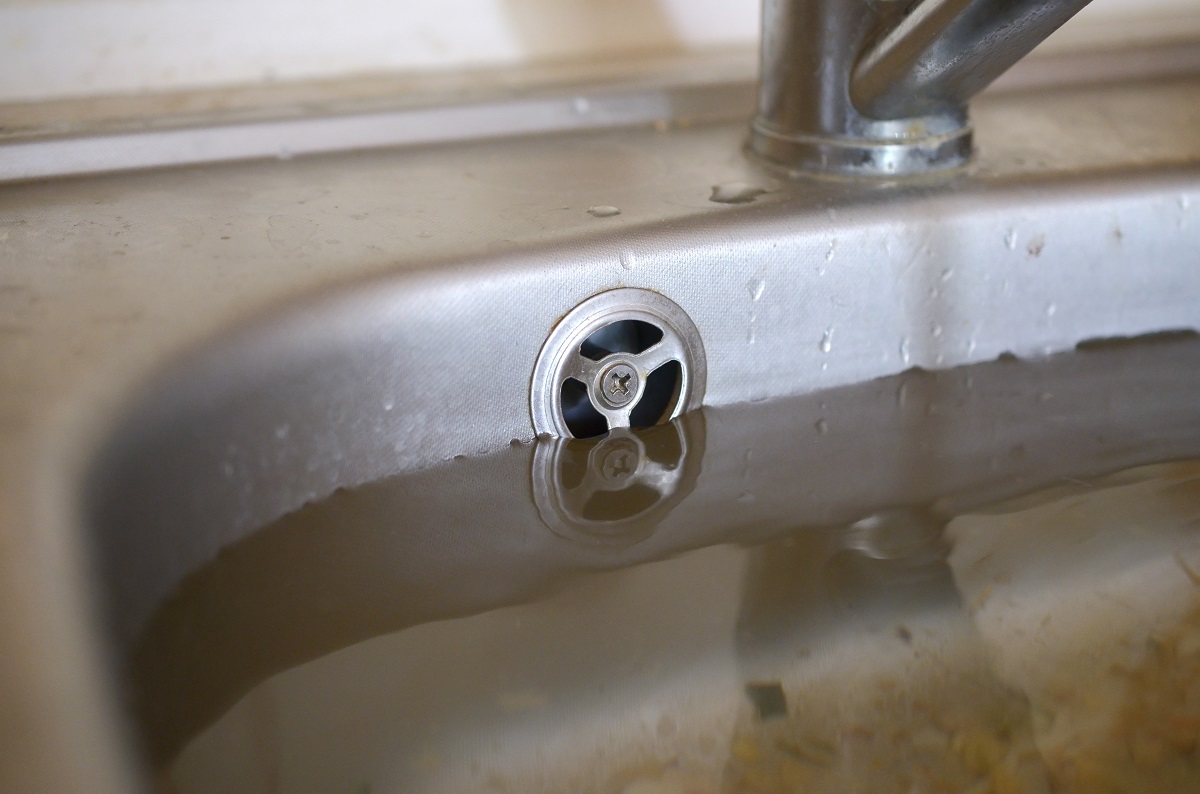
If you’re coming from a hard day at work or an afternoon in the park, you’ll be tracking in the dirt with you. Your first instinct might be to hop into the shower and rinse all that dirt off, which is to be expected. However, if you allow large amounts of dirt and debris to get into your drains, you’re likely to cause a clog.
Worse still, if you let larger pieces of debris like pebbles fall into your drains, it can cause scratching and damage to the inside of your pipes. If you’re unlucky, it can cause leaks on top of your clogged drain.
You can still wash the dirt off in the shower of course, as there will be things that cannot be removed without the help of soap and water. Just make sure to rinse and throw away large pieces of dirt and debris before stepping into your bathrooms.
Mineral Build-up
There are trace amounts of minerals in all the water that flows through your household. Hard water, which is when there is a large amount of mineral in your water, can cause a build-up that can easily block your drains and pipes.
Hard water leaves behind a mineral residue called scale, which hardens in and around water fixtures, including drains. Scale can combine with other types of residue (like the soap and toothpaste examples mentioned earlier) to create clogs.
Thorough and regular cleaning is the way to prevent this from happening. The more often you can clean and descale your drains, the easier it will be to remove the build-up.
Key Takeaway
If you find your sinks, showers, or bathtubs are draining slowly or not at all, that is a sure indicator that you are dealing with a clogged drain. If the clog is manageable enough, it can be removed with some tools and elbow grease, followed up by a thorough cleaning. Afterward, the next best step is prevention. Know the causes of clogged drains to take what precautions to take. Additionally, being mindful of your habits and cleaning will go a long way in safeguarding your drains from future problems.


